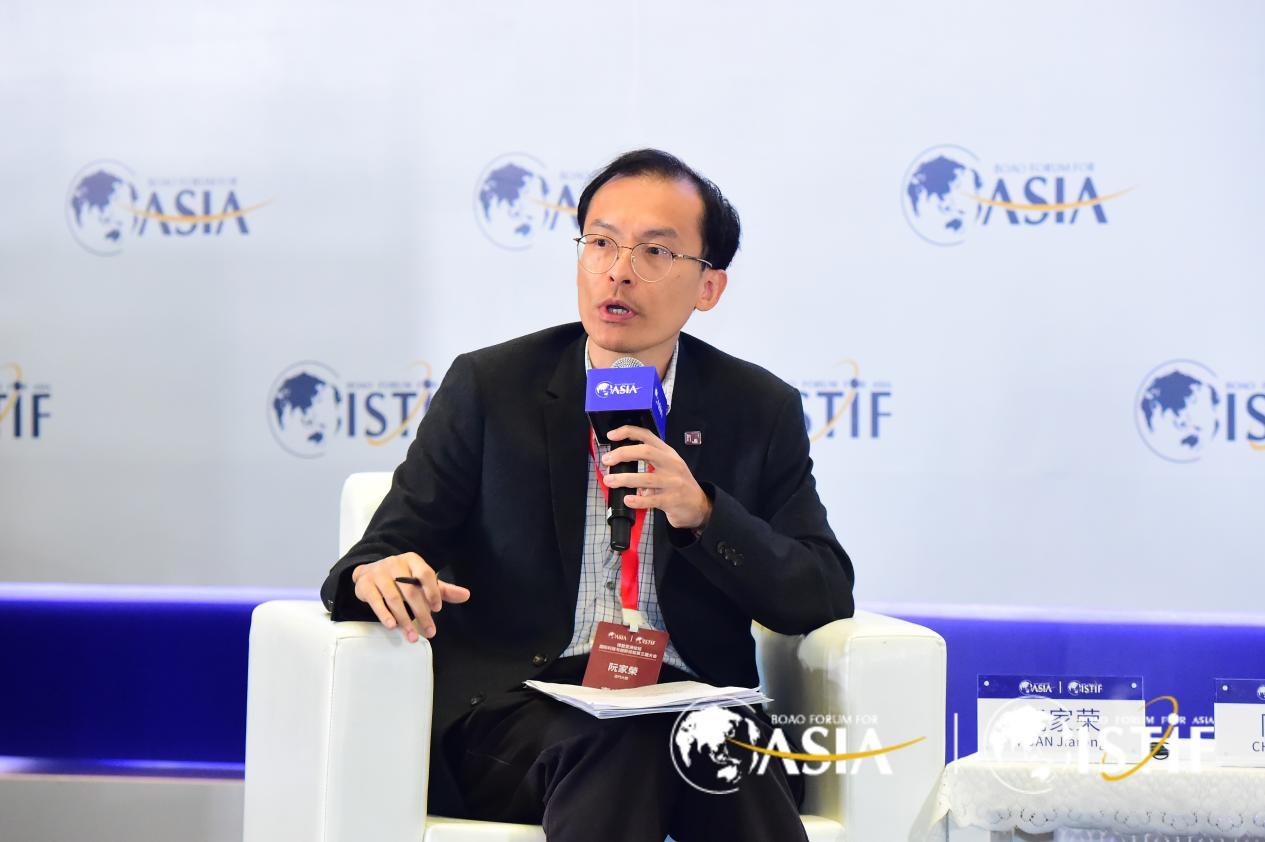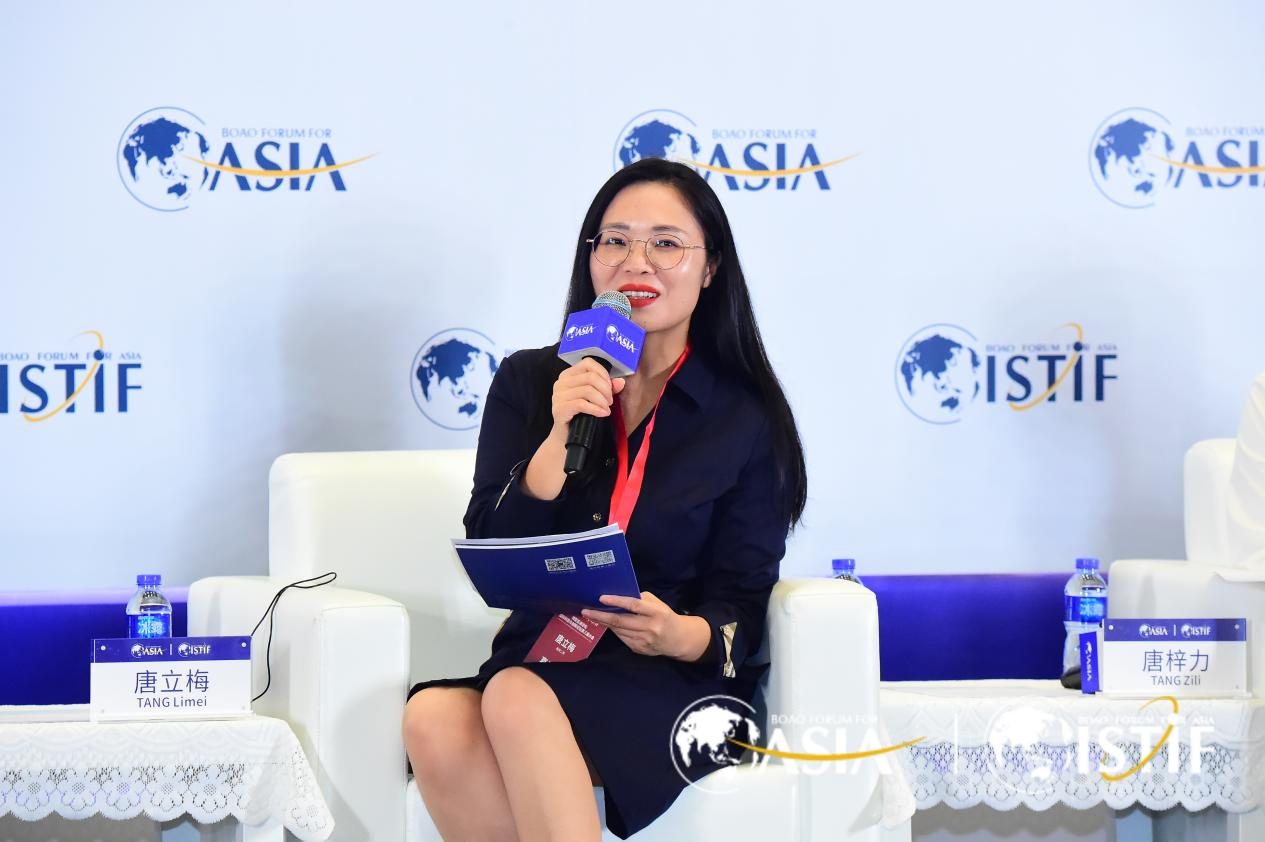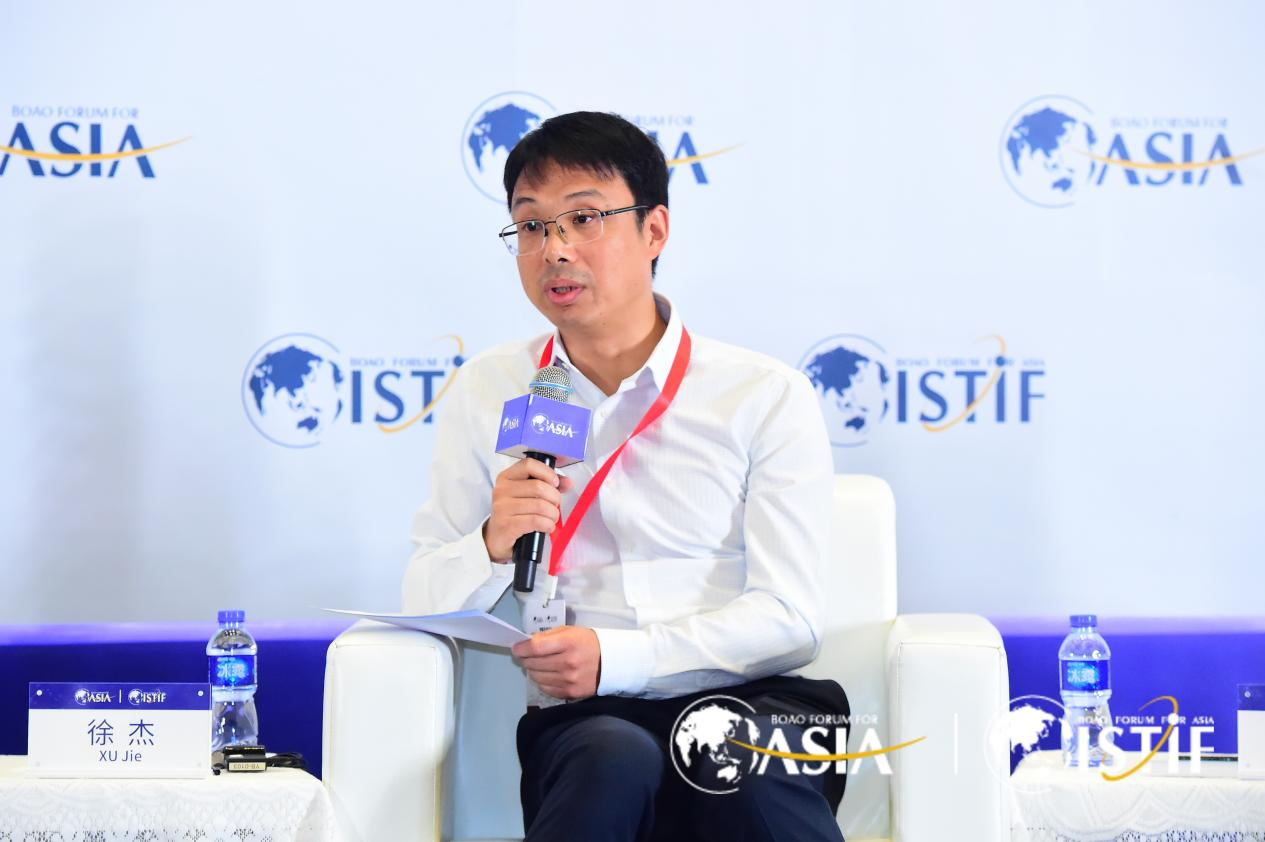The session was moderated by RUAN Jiarong, Distinguished Professor of State Key Laboratory of Internet of Things for Smart City at the University of Macau and Co-Director of the Guangdong-Hong Kong-Macao Joint Laboratory on Smart Cities.The panelists included SU Jilan, Academician of the CAS and Honorary Director of the Second Institute of Oceanography; SUN Dongbai, Deputy Director of the Southern Marine Science and Engineering Guangdong Laboratory(Zhuhai) and Former Executive Vice President of Sun Yat-sen University; WANG Dongxiao, Dean & Professor of School of Marine Sciences at SUN YAT-SEN UNIVERSITY; CHEN Jianfang, Deputy Director of the Second Institute of Oceanography, MNR and Director of the State Key Laboratory of Satellite Ocean Environment Dynamics; TANG Limei, First Female Scientist Diving to the Ocean with Jiaolong Submersible; XU Jie, Department head of the Department of Marine Science and Technology at the University of Macao and professor of University of Chinese Academy of Sciences; TANG Zili, General Manager of the Ocean Division at Zhuhai Yunzhou Intelligence Technology Co., Ltd.; and P.B. Terney Pradeep KUMARA, Professor of Oceanography at Ruhuna University and Director of Centre for International Affairs. They discussed topics related to marine equipment, marine economy, and more.
SU Jilan pointed out that the marine economy takes place within the marine ecological environment, and the development of the marine economy and the health of the marine ecological environment have a complex dialectical relationship. SUN Dongbai introduced that with the support of Zhuhai, the Southern Marine Laboratory has formed a strong research team in the fields of marine science and marine engineering. WANG Dongxiao stated that Asia is an excellent venue for marine technology exchanges, and handing over the next generation of marine technology cooperation to the youth will have a more vibrant future. CHEN Jianfang emphasized that many ecological disasters in the ocean ultimately stem from marine pollution, which is also a crucial aspect of the current battle against water pollution. TANG Limei pointed out that the future development of marine equipment mainly revolves around improving observation efficiency, expanding observation scope, enhancing observation accuracy, and promoting scientific research. XU Jie believes that the monitoring of the ecological environment requires not only monitoring chemical parameters but also monitoring the ecosystem. Therefore, the marine environment needs real-time monitoring of multiple environmental elements such as hydrology, meteorology, and ecological environment. TANG Zili pointed out that while China's marine intelligent equipment is at the forefront globally, there is still a significant gap in certain aspects compared to foreign counterparts. P.B. Terney Pradeep KUMARA stated that Sri Lanka is a country highly dependent on the marine economy, and the government is encouraging more young people to understand the ocean, possess a sense of oceanic consciousness, and develop new technologies for marine conservation.
With the development of technology, the "blue" has become an indispensable part of human society. The panelists unanimously agreed that the ocean and climate change are closely related, and the interaction between the ocean and the atmosphere can trigger global or regional climate anomalies and meteorological disasters. Strengthening ocean observation helps reduce the loss caused by disasters and protects the marine economy. On the other hand, as an emerging industry, the development of China's marine equipment industry is of significant importance to the conduct of marine scientific research, as well as marine disaster prevention and control, and the development of the marine economy. With the rapid development of marine technology, humanity will better move towards "blue" sustainable development.









